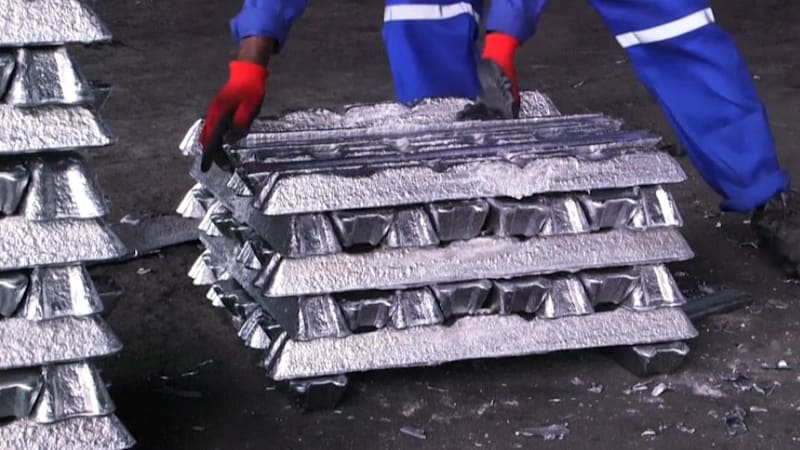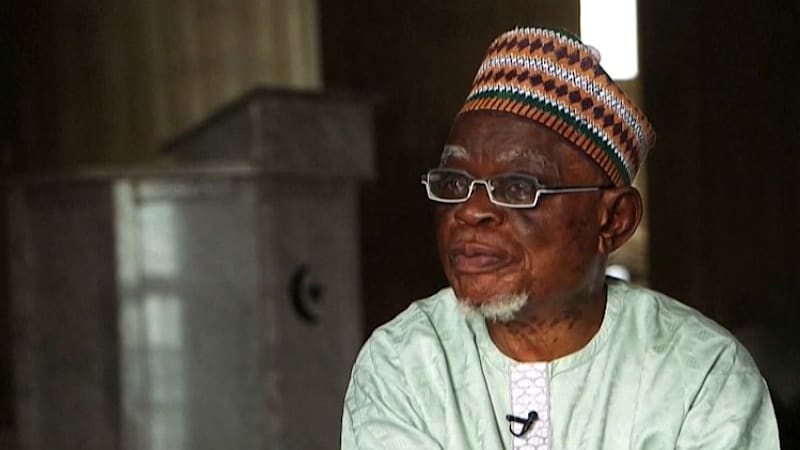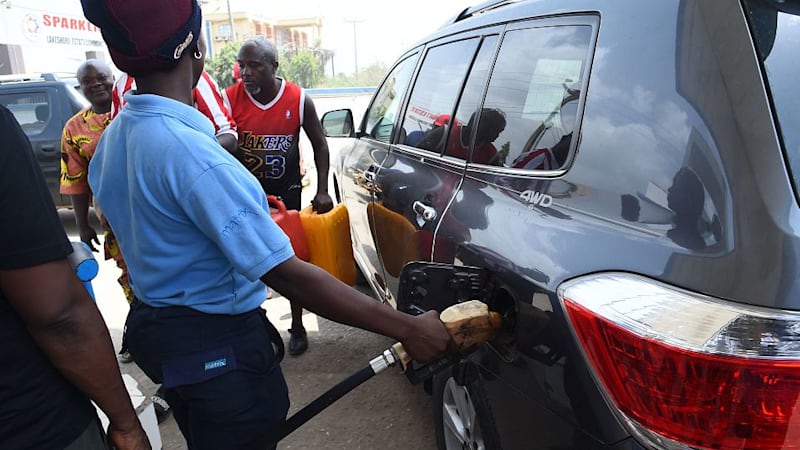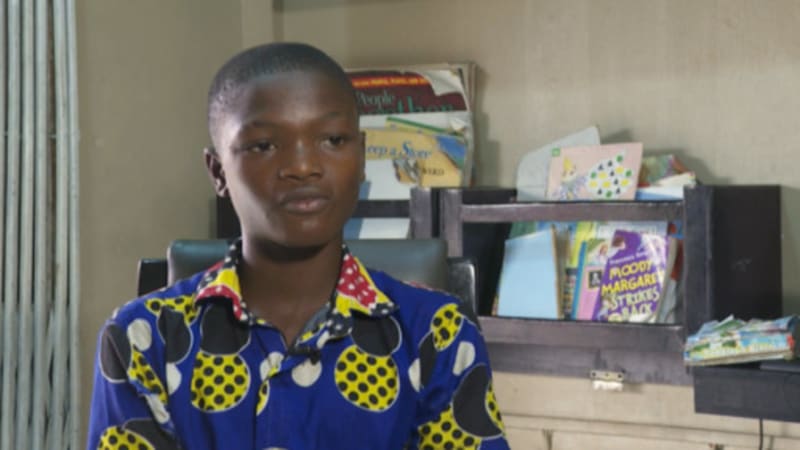November • 2023
It was alright....being the first one with Dolapo

Lagos, Nigeria
17 reviews$500 - $500 / Day
Request a demoMy name is Quadri Taiwo, i am a documentary Cinematographer and video journalist with a passion for storytelling with a strong background in broadcast journalism. I have a keen eye for capturing compelling stories that bring attention to important issues. I am a well-rounded and versatile cinematographer and editor, having honed my skills in a range of productions, from news gathering, field, and studio productions. I worked as a cinematographer for WHISPER TV, UK on the exploits of the Super Falcons of Nigeria during the All Roads Lead Down Under Documentary. I filmed behind the scenes as teams from all over the globe try to secure their qualification for the FIFA Women's World Cup 2023. i also work as a freelance video journalist for Al Jazeera, AFP, TRT, DW, and VOA
November • 2023
It was alright....being the first one with Dolapo
February • 2024
Had some hiccups but worked out afterall

Produced for TRT World News
Africa's most populous nation Nigeria is headed for its most polarising election in 30 years. Voters are split along ethnic, political and religious lines, while the youth clamour for change

Produced for AFP
Mounds of waste scattered along roads and vast landfills are a Nigerian eyesore. In Africa's biggest economy and most populous country, collecting, sorting and recycling trash is despairingly rare. But there is also good news. Some entrepreneurs are working hard to tackle the rubbish mountain, despite the many challenges. Buoyed by good results, it built a second facility outside Ghana's capital Accra and now plans to open at least three new plants across Africa and triple production by 2025. Aluminium is the world's second most-used metal after steel and used widely in construction, medicine and car-making. "Electric vehicles require more durable lighter material such as aluminium, and that´s where our materials end up," said the company's youthful founder, 32-year-old Raymond Onovwigun. - Job creation - A British-registered company, Romco melts down and recycles around 1,500 tonnes of discarded aluminium per month, out of a capacity of 3,000 tonnes. It says it has created 450 direct jobs -- 5,000 in total, in this labour-intensive sector -- and plans to double that number within a year. "Before... there was no work," community leader Bankole Gbenga known as Chief Abore said during a recent visit to the Lagos facility. Chief Abore says more than a hundred young people from his community alone now work for Romco in some capacity. "Some are doing carpentry, some are welders... some of the youth are doing security," said the 40-year-old. Among those who have most benefited from Romco´s business are material suppliers like Mohammed Ashiru Madugu, who delivers several truckloads of metal scrap each week. Madugu has a warehouse in northwestern Katsina, where suppliers from across the state and even neighbouring states bring him discarded metal. He loads the goods onto trucks and sends them -- with escorts because of frequent ambushes by criminal gangs on the road -- all the way to Lagos, more than a thousand kilometres (600 miles) away. For one truck, he can get paid up to 26 million naira (about $60,000 dollars) although the price fluctuates. - Vast problem - Only a tiny fraction of waste is recycled in Nigeria, a country of some 210 million consumers. Plastic, metal and glass that in advanced economies are routinely picked up and processed are mostly tossed out. Each year, Nigeria disgorges 200,000 tonnes of plastic into the Atlantic, the UN Industrial Development Organisation reported last year. In Lagos alone, a city of more than 20 million people, less than 10 percent total recyclables are currently collected, according to Ibrahim Adejuwon Odumboni, managing director of the Lagos State Management Agency. By comparison, in the UK, more than 41 percent of waste picked up by local authorities was recycled last year, according to British statistics. For Odumboni, recycling initiatives are to be commended but more should be done by the companies making aluminium beverage cans and other products. "We need the manufacturers to invest in the collection system. In many parts of the world, a portion of what producers sell is going into the recovery of products. We currently don't have that in Nigeria," he said. If companies selling aluminium products "are not held responsible (for collecting waste) then it doesn´t make any sense -- we're just going round and round in circle." He blames poor legislation but says an improved law on Extended Producer Responsibility (EPR) is currently being discussed in the state house of assembly. EPR is an environmental policy in place in many countries that gives producers incentives to take responsibility for their products after they are used. Another challenge for recyclers is carbon emissions from the energy they use to crush, shred or melt old materials. Romco, for instance, uses compressed natural gas to turn the aluminium into ingots. "(It) is still a fossil fuel but the best, most efficient fossil fuel. It doesn´t contain lead or sulphur," said Onovwigun. The company says, however, that it wants to be independent of fossil fuels and is "exploring the potential of using solar, green hydrogen, and biofuels."

Produced for AFP
After gunmen attacked a Catholic church in southwest Nigeria, killing 40 people and wounding more than 60, Owo town's chief imam Ahmad Aladesawe has been holding his prayers in a mostly empty mosque. The rare attack in the usually more peaceful southwest has scared away worshippers, the imam said. The tragedy has prompted Aladesawe to reach out to his community and his Christian brethren and build bridges. Christians and Muslim families in Owo were both affected by the attack. Two of the imam's Christian relatives were wounded, one in the leg and one in the back. Gunmen used explosives and opened fire as worshippers were finishing Sunday service in Owo in Ondo State, leaving bloodstains and debris scattered inside the church. Police said they found three unexploded, homemade bombs at the site of the attack. No group has claimed responsibility for the violence and the motives were not clear, but the attack has shaken both Muslim and Christian communities. Nigeria is almost equally split between the mostly Christian south and the predominantly Muslim north, and intercommunal tensions often flare-up. "What happened in Owo was least expected, nobody ever expected it," Aladesawe said. "I have been trying to speak to my people because the incidents that happen scared away many of them from worshipping in the mosque," he said. The violence at St. Francis Catholic Church drew widespread international condemnation, including from Pope Francis, who offered prayers for the victims and the country. The imam visited the church a day after the bloodshed to hand over a donation collected by the town's Muslim community. But he said he believed the attack would not undermine relations between the two communities. In the northeast, jihadists sometimes attack churches in their 12-year Islamist insurgency that has left 40,000 dead and two million more displaced. In Owo, though, communities often live side-by-side, sharing homes and the bond of belonging to the same families. "My grandfather had five children, three of them Muslim two of them Christian," he said. "We live together in peace."

Produced for AFP
Nigeria, however, is in the uncanny position of being stuck in a subsidy arrangement that guarantees that high oil prices leads to an exponential rise in government expenditure," said local risk analyst group SBM Intelligence.

Produced for Deutsche Welle
In one of the biggest slums in Lagos, Nigeria, some children find peace, quiet, and books – thanks to a small, free library in their neighborhood.

Produced for TRT World News
Camera
Audio
Miscellaneous
Production Support
Miscellaneous